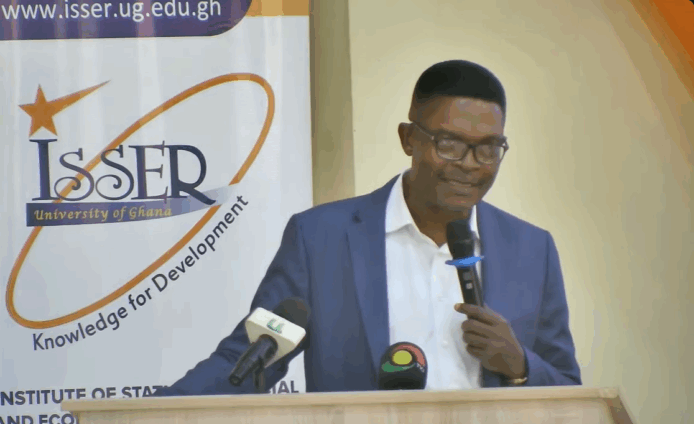Published
8 months agoon
By
Adubianews
With just five years left to meet the Sustainable Development Goals (SDGs), Ghana must place inequality at the centre of its development strategy or risk social breakdown, warns Dr Emmanuel Akwetey, Executive Director of the Institute for Democratic Governance (IDEG).
Speaking at the launch of the 7th Ghana Social Development Outlook (GSDO) 2024 by ISSER in Accra, Dr Akwetey described inequality in Ghana as a national emergency and the foremost challenge facing the country today.
“Social inequality is the single most important problem that our social development efforts must address,” he declared, adding that rising disparities are undermining Ghana’s cohesion and democracy.
He praised the ISSER report for providing critical data to guide policy decisions, but noted that despite years of economic growth, benefits have not reached all segments of the population. Drawing from a recent Oxfam report, he illustrated the deep imbalance in national wealth:
The richest 10% of Ghanaians consume 32% of the total output
The poorest 10% consume just 2%
The bottom 60% consume less than the top 10% combined
“This disparity undermines not only economic justice, but also the very foundation of national cohesion and stability,” Dr Akwetey cautioned.
He also pointed to entrenched regional and gender gaps in access to education, healthcare, housing, water, and employment. “Women, particularly in rural areas, face multiple layers of exclusion – lower access to tertiary education, productive resources, healthcare, and leadership opportunities,” he said.
The IDEG Director warned of dire consequences if the situation persists:
Weakened poverty alleviation efforts
Barriers to inclusive economic growth
Disillusioned youth calling for military rule
Growing mistrust in public institutions
He expressed concern over frustrations among young people who, in their discontent, flirt with anti-democratic ideas. “They may be too young to fully understand the consequences of military regimes, but their frustrations are real and must be taken seriously,” he warned.
Dr Akwetey urged political leaders to act with moral clarity and political courage. “The task ahead is not merely technocratic; it is deeply political and moral. We must rethink how public resources are distributed to ensure that all Ghanaians, regardless of region, gender, or class, benefit fairly,” he said.
He recommended four major steps:
Equity in public spending, especially targeting marginalised groups
Empowered local governments, with the timely release of funds
Sustainable domestic financing as donor support wanes
Transparent budgeting to foster citizen oversight
“Institutions like ISSER play a vital role through budget analysis and research. Their work enhances accountability and ensures that social spending delivers real outcomes,” he added.
Calling the 2024 Ghana Social Development Outlook both a “map and a mirror,” Dr Akwetey said it charts Ghana’s future while reflecting current shortcomings. He acknowledged progress in areas like education and healthcare but warned that these gains risk being lost to growing inequality.
Achievements mentioned include:
Expansion of Free Senior High School
Greater female education participation
Health infrastructure growth through Agenda 111
Reduced open defecation rates
Still, Dr Akwetey issued a sobering reminder: “If we are to achieve the SDGs and build a just, inclusive, and resilient Ghana, tackling inequality must be at the heart of our national strategy. It’s not just about policies; it’s about the political will to do what is right.”
The GSDO report, published biennially by ISSER, covers trends in education, health, sanitation, employment, energy, housing, gender, and social equity. It remains a key resource for researchers, civil society, and development planners across Ghana.

























